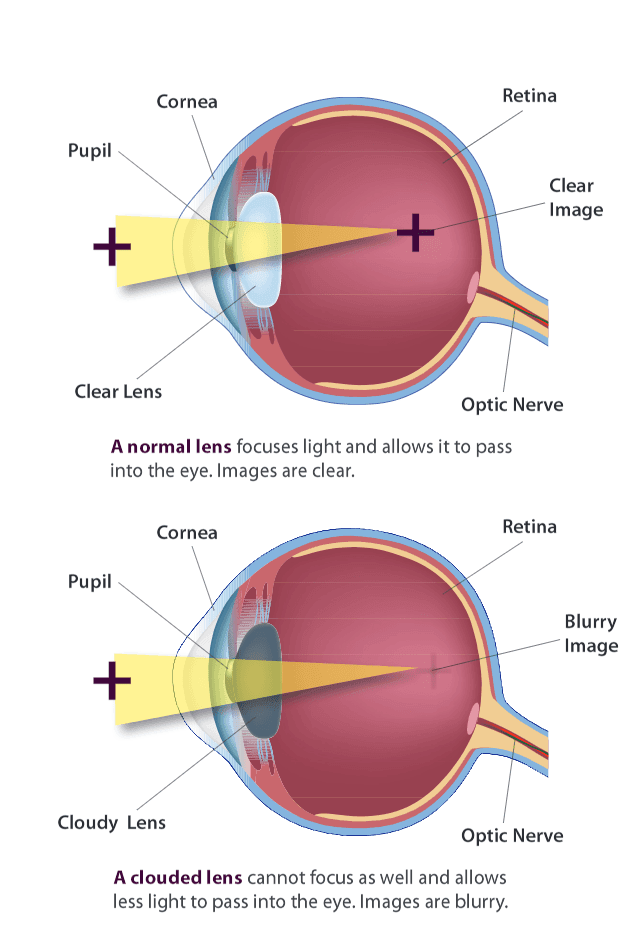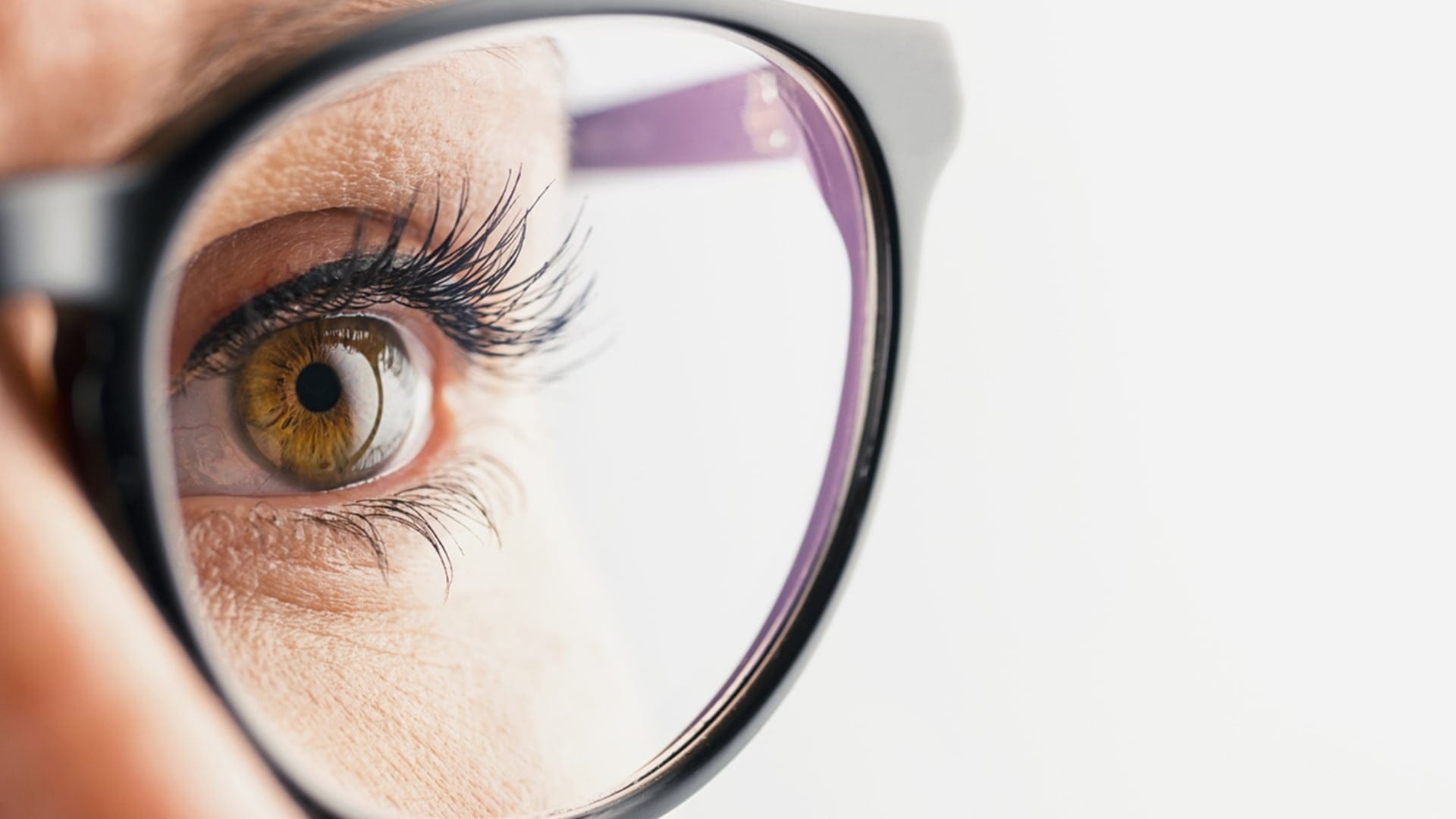Cataracts are the leading cause of vision loss in the United States, and are a major cause of blindness globally. According to Prevent Blindess, by age 65, cataracts can affect over 90% of people in the US. But how do cataracts affect vision and what cataract symptoms should you look out for?

What Are Cataracts?
Cataracts occur when the lens of your eye clouds up from natural proteins that build up over time. The lens is a clear part of your eye that helps focus light or an image on the retina and adjusts to allow the eye to see clearly at all distances. The retina is the light-sensitive tissue at the back of the eye. A clear lens is vital for the retina to receive a clear image. Cloudy lenses allow less light to pass through your eye, so vision becomes blurred. It is common that as you age, you’re more likely to experience cataract symptoms. Gradually vision will resemble looking through frosted glass. This clouding cannot be corrected with glasses or contacts.

Cataract Symptoms
Luckily, cataracts are completely common and very simple to treat. Early signs are sometimes hard to detect and can affect every person differently. Here are some key side effects to keep an eye out for:
Early signs of cataracts
- Cloudy or blurred vision
- Trouble seeing clearly at night
- Light sensitivity
- Seeing “halo” shapes around lights
- Faded colors
- Double vision
Cataract Treatment
There is no way to prevent cataracts completely. However, making healthy choices can slow their development. Aside from common aging, smoking or certain diseases (like diabetes) and exposure to UV light can play into whether cataracts develop. As reported by National Eye Institute, by age 80, more than half of all Americans either have a cataract or have had cataract surgery. It can occur in either eye, but can’t be spread from one eye to another.
Can an optometrist diagnose cataracts?
Cataracts are one of the leading causes of vision loss. Your eye doctor can diagnose a cataract during a routine eye exam. During the eye exam, the slit lamp is used to check your overall eye health. With this tool, your eye doctor can catch early signs of conditions like cataracts, glaucoma, and diabetes. Early treatment of cataracts can be improved with eyeglasses, brighter lighting, a magnifying glass, anti-glare lenses, or polarized sunglasses. After those treatments stop working, cataract surgery is the only permanent effective treatment.
Cataract Surgery
A cataract only needs to be removed when vision loss interferes with your everyday life. Our doctors at Dr. Tavel are here to help you with this decision. Surgery has benefits and risks, and delaying surgery will not cause long-term damage to your eye. There is no need to rush into surgery. After surgery, your vision will be clearer, however, glasses may still be required to aid your sight and provide clearer vision. Even if glasses are not required, it is still important to have annual eye exams to monitor the health of your eyes.

Noticing Cataract Symptoms? Schedule an Eye Exam.
Have more questions about your eye health or eye care options? Our team at Dr. Tavel is ready to help you through every part of your eye care journey. Early Cataract symptoms can be detected through a routine eye exam. Prioritize your eye health and schedule an eye exam and talk to one of our optometrists about your options.

